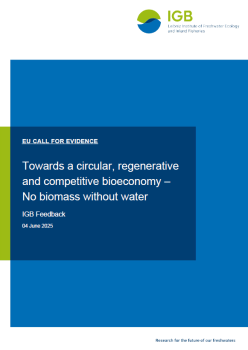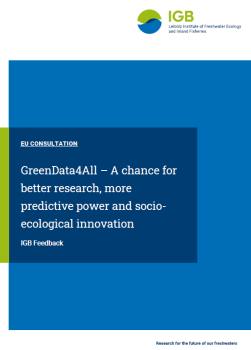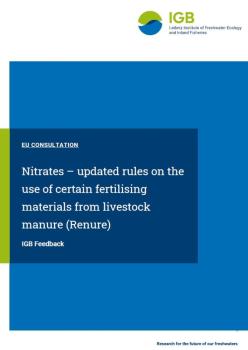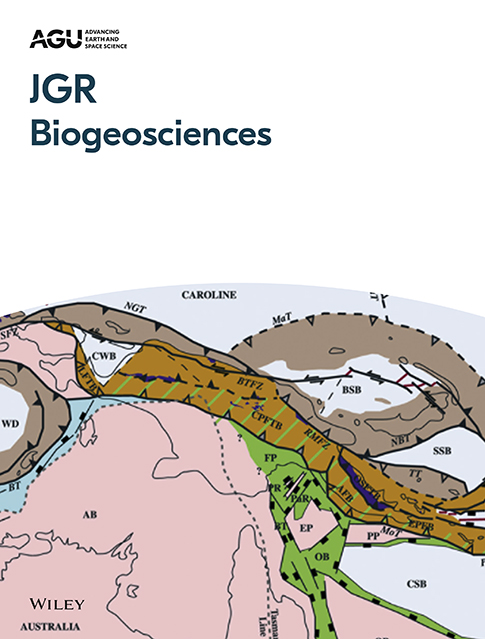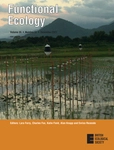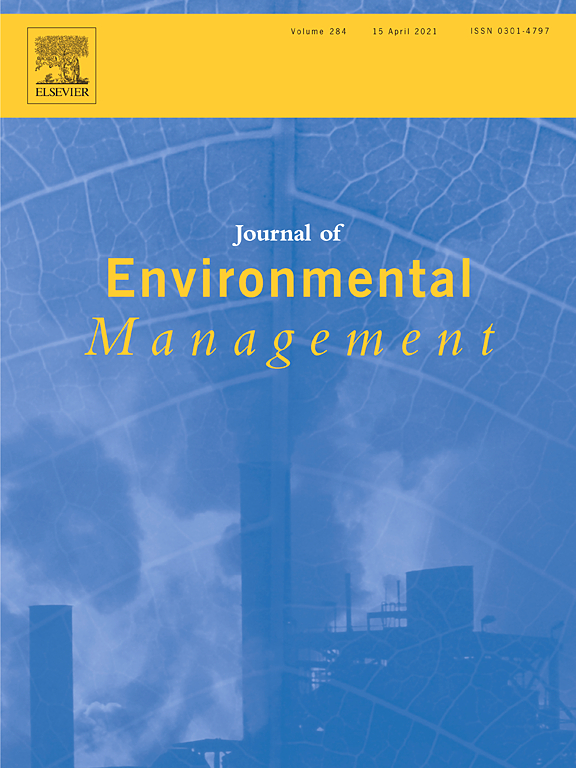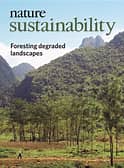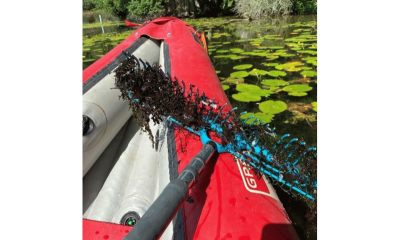
Freshwater habitats and wetlands are among the most important ecosystems on Earth because they provide important ecosystem services to our societies. These include, for example, drinking water supply, flood prevention, inland fisheries, transport and recreation. The importance of inland waters for humans should lead to their protection. But indeed, intensive use and the fact that many wetlands are linked to fertile soils put a high pressure on many freshwater ecosystems.
In the programme area “Ecosystem Services for a Sustainable Future”, IGB is investigating ecosystem services of freshwater habitats and how they can be managed and restored. Important goals are to understand the mechanisms providing resilience to freshwater ecosystems and to elaborate nature-based solutions that support the multiple functions of freshwaters. Production, regulating and cultural services of freshwater ecosystems, the processes that support them, and their threats will be studied. Sustainable fisheries and aquaculture are an important dimension of this programme area.
Speaker
News
Downloads
Selected publications
From Soil to Sediment: Bedform Migration Shapes Microbial Communities From Eroding Bank Soil During Terrestrial–Aquatic Regime Shift
The authors tested the impact of simulated ripple migration on two types of river sediment, namely aquatic sediment and incoming soil from eroding riverbanks, and compared them to stationary conditions in a microcosm experiment. Ripple migration influences community dynamics and microbial metabolism and decelerates the colonization of incoming soil from eroding riverbanks.
Persistent inequities in global lake science
The study shows that, of the approximately 2,500 lakes that had been scientifically investigated by 2020, around 50 per cent were located in North America, 21 per cent in Asia, and 16 per cent in Europe. In contrast, lakes in Africa, South America and Oceania have been much less researched.
Multiple-stressor effects on leaf litter decomposition in freshwater ecosystems: A meta-analysis
By using a meta analytical technique, the authors investigated the effect of multiple-stressors on leaf litter decomposition in freshwaters. The overall interaction between multiple stressors was antagonistic and the magnitude and direction of multiple-stressor interactions depends on factors such as the involvement of macroinvertebrates, habitat type and available resources.
A global systematic map of knowledge of inland commercial navigation effects on freshwater ecosystems
The authors conducted a systematic mapping of the published literature (1908–2021) to provide a global synthesis of the effects of inland navigation on the biotic and abiotic components of freshwater ecosystems. Inland navigation impacts rivers through shipping, infrastructure, and waterway management, causing direct (e.g., waves) and indirect effects (habitat loss, invasions).
Recreational killing of wild animals can foster environmental stewardship
The authors add a new perspective to the topic of "recreational use of wild animals". The hypothesis is that an emotionally intense interaction between hunters / anglers and wild animals can create a particularly strong sense of responsibility, described as "environmental stewardship". This in turn would be an incentive for many to commit to lifelong environmental and species protection action.






